
- can-jehovahs-witnesses-go-to-school-dances
- why-some-jehovahs-witnesses-choose-not-to-attend
- personal-and-family-decisions-vary
- how-young-jehovahs-witnesses-handle-social-events
- stories-of-students-navigating-school-dances
- alternatives-for-expression-and-creativity
1. Can Jehovah’s Witnesses Go to School Dances?
A common question among classmates, educators, and even parents is: can Jehovah’s Witnesses go to school dances? The short answer is—it depends. While Jehovah’s Witnesses are not outright forbidden from attending dances, the religion encourages members, especially young people, to avoid events that may conflict with their values. For many followers, school dances are considered social settings where the behavior, music, and atmosphere might not align with their beliefs.
This decision isn't necessarily enforced with strict rules but is guided by personal conscience, spiritual education, and family discussions. As with many aspects of faith, the answer can be more personal than public.
2. Why Some Jehovah’s Witnesses Choose Not to Attend
Jehovah’s Witnesses are taught to avoid environments that promote behavior they believe could lead to spiritual or moral compromise. School dances often include loud secular music, dim lighting, suggestive lyrics, and peer pressure—elements that are often seen as distracting from a life focused on Bible-based values.
Attending a dance may also be viewed as participating in an event that emphasizes appearance or popularity—ideas that conflict with the humility and modesty encouraged in their community. Many young Witnesses grow up with the understanding that spiritual gatherings, not social dances, are more beneficial to their personal development.
3. Personal and Family Decisions Vary
It's important to recognize that not every Jehovah’s Witness family views school dances the same way. Some may allow their children to attend a daytime school-sponsored dance with supervision and clear boundaries, while others might opt out entirely. What’s consistent is the emphasis on open communication and respect for religious principles.
Many parents will sit down with their children to discuss the nature of the event, what music will be played, what kind of behavior is expected, and whether there are alternatives that align more closely with their faith.
The key factor here is intention and awareness. When teens understand why their families guide them away from certain events, they often feel more confident in their own decision-making.
4. How Young Jehovah’s Witnesses Handle Social Events
Choosing not to attend a school dance doesn’t mean missing out on social life entirely. Many young Jehovah’s Witnesses find creative ways to stay engaged—through congregation gatherings, game nights, family activities, and volunteer work that supports their values.
These alternatives can be just as fun and fulfilling, especially when shared with a close group of friends who understand and support similar beliefs. In fact, many Witness teens say they prefer these settings because they feel safer, more genuine, and aligned with who they want to be.
5. Stories of Students Navigating School Dances
Take Noah, a ninth-grader in Florida. When prom season rolled around, he politely declined the invitation from his classmates and instead spent the evening at a family movie night. “At first I felt a little left out,” he admitted, “but the more I thought about it, the more I realized I didn’t want to be there just to fit in.”
Similarly, Emma, an eighth-grade student in Oregon, once asked her teacher if she could help decorate for the school dance without attending the event itself. “I wanted to be part of the effort without feeling like I was compromising,” she shared. Her teacher respected her decision and even praised her maturity.
These stories show that with understanding and respectful boundaries, it's entirely possible to stay true to your beliefs while still being part of your school community.
6. Alternatives for Expression and Creativity
For those who love music, dance, and social connection but don’t feel comfortable attending traditional school dances, there are other ways to express themselves. Classes, performances, and workshops—especially ones focused on technique and creativity—can provide a safe, joyful outlet.
American Dance Academy offers personalized instruction that aligns with many family values and cultural sensitivities. With structured programs in styles like classical ballet, contemporary, and modest ballroom, students can learn, grow, and thrive in a supportive environment.
For young people who want to explore dance without compromising their convictions, American Dance Academy is a great place to find mentorship, movement, and meaningful expression.
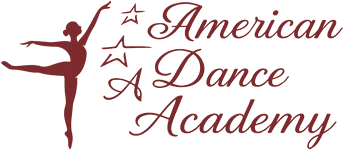
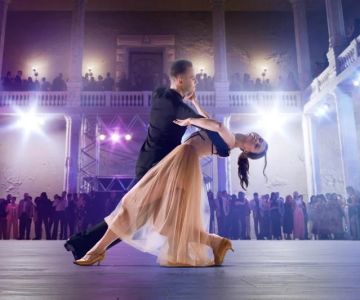
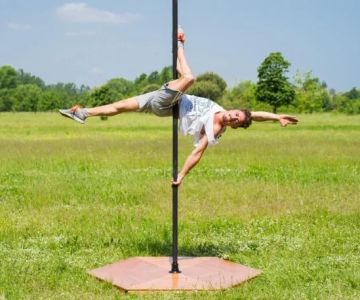
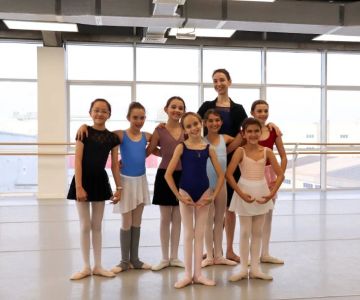
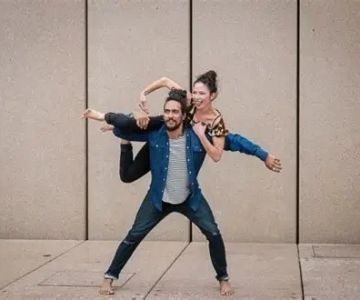
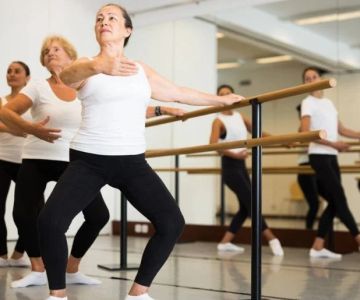
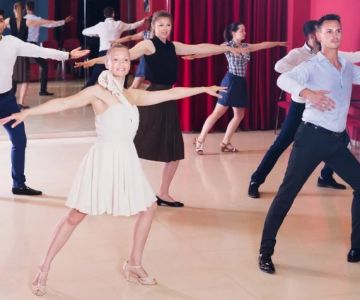
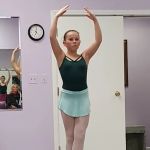 Barrington Dance Academy5.0 (22 reviews)
Barrington Dance Academy5.0 (22 reviews) Canyon Concert Ballet4.0 (17 reviews)
Canyon Concert Ballet4.0 (17 reviews) Big City Dance Center LLC4.0 (25 reviews)
Big City Dance Center LLC4.0 (25 reviews) Tye Chua Dance & Kalamazoo Ballet5.0 (18 reviews)
Tye Chua Dance & Kalamazoo Ballet5.0 (18 reviews) Fenton Ballet Theatre4.0 (24 reviews)
Fenton Ballet Theatre4.0 (24 reviews) Front Street Dance Center5.0 (7 reviews)
Front Street Dance Center5.0 (7 reviews) Are There Dances in Middle School? What Students and Parents Should Know
Are There Dances in Middle School? What Students and Parents Should Know How a Dance School in Instagram Builds Community and Success
How a Dance School in Instagram Builds Community and Success Why Do Schools Teach Square Dancing?
Why Do Schools Teach Square Dancing?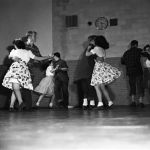 Why Was Square Dancing Taught in School?
Why Was Square Dancing Taught in School? Why Swing Dance Is Popular for Adults
Why Swing Dance Is Popular for Adults A School Dance: How to Prepare, Shine, and Make It Unforgettable
A School Dance: How to Prepare, Shine, and Make It Unforgettable